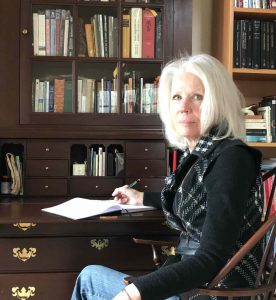“The privilege of a lifetime is to become who you truly are.” C. G. Jung
The title question may seem odd, but I am entirely serious. Who is setting your goals for the New Year and New Decade? Your personality ego or your heart-based Self? Think of where you were in life at the beginning of 2010, where you are now, and where you would like to be in 2030. If you are dissatisfied with how the last decade went, maybe it’s time to review your source of inspiration and your core values.
Let me explain by example:
Have you ever been in a job interview where your prospective employer asks: “Where do you see yourself in five years?” The underlying question here is, what are your career aspirations, and how long do you expect it to take? This approach is a very linear and rational process by which much of society operates.
If you are aligned with your company’s mission statement (and they “walk their talk”), then you are fortunate. Your core values and your company’s core values are in sync. Such alignment is the basis for contentment and happiness; however, it is not the case for many people.
Most of us have grown up with the practice of goal setting, and the process of setting out a plan to achieve those goals. But what are these goals based on and which aspect of yourself is championing them? You may answer the interviewer (in the above example) based on the many expectations you have for yourself.
You may give answers that position you for the job, but unless there is coherence between the job and who you are at your core level, it is only a matter of time before you feel dissatisfied. In five years, I want to be (fill in the blank). I, too, have fallen under this spell and lost touch with my authentic Self.
At the time, I operated from an unconsciousness set of tapes in my head, the “shoulds” of my family, and societal imprints. I was so cut off from my core values that I never suspected that my ladder was leaning up against the proverbial wrong building.
Our core values define who we are at our deepest level.
Core values are at the heart of who we are, and they are innate rather than chosen. Several examples of core values are:
- Acceptance
- Appreciation
- Balance
- Joy
- Intuition
- Freedom
- Flexibility
- Gratitude
- Spirituality
- Well-being
- Recognition
- Security
For many, core values have been suppressed in order to survive in the modern competitive world. Many people have lost touch with and can’t tell you what their core values are–I was one of them.
Many people achieve the “American Dream” with all the success and trimmings that go along with it, yet just under the surface many “successful” people are depressed? By now, many of us accept the fact that money, status, and power do not make us happy.
Often, these trophies exist in the realm of the personality ego, the part of you that can never be satisfied because core values emanate from your heart, not your egoic mind.
After getting that dream job, dream house, dream whatever, the Hungry Ghost syndrome of never being satisfied and always wanting more kicks in. Such is is the voice of the ego-personality, one that can never be satiated; it’s simply not in its nature.
Just after you achieve a big goal or dream, you may feel let-down if the goal is out of alignment with your core values and authentic Self. If you feel empty after achieving a big win, it was most likely an ego-based goal. The excitement of the promotion or new relationship may wear off just like a toy did when you were young unless it resonates with your inner authenticity.
At some point in my midlife, as often happens, I felt that my soul was dying. I was in a job that was draining my energy, and the stress was robbing my health. This high-level position looked great from the outside, but I came to recognize that it didn’t match up with my core values.
During this time, I was so out of touch with personal core values I didn’t even recognize what they were or how neglected they had become.

“There is an extraordinary distance from the head to the heart, a distance of ten, twenty, thirty years, or a whole lifetime.” C.G. Jung, Seminars on Kundalini Yoga.
There Is Another Way
James Hillman (father of archetypal psychology) used the “acorn theory” to illustrate how we each possess inherent core values that are unique. The “acorn” is who we are at our deepest level.
To live life based on an inner calling rather than one based on a calculated strategy set in motion by the egoic mind is to open the doors of unlimited creativity, meaning, and contentment. It is the metaphorical unfolding of the acorn blueprint into the grand oak tree.
The acorn’s destiny is to grow into an oak tree, not a palm or apple tree. Similarly, the artist’s acorn is to create works of art, not to write computer code. S/he may be able to do either, but one path will be soul-satisfying and the other will be soul-death at the hand of the ego.
To live in accord with the dictates of the ego is to live in fear. I know I chose this path for many years, due to a lack of awareness. It’s not our fault while we remain unconscious, but the acorn keeps trying to grow according to its unique destiny.
The ego rails against the voice of the Self (the soft voice from your heart) in favor of its own agenda. The ego hates not getting its way. C. G. Jung wrote (CW 14 par. 778):
“. . . the experience of the self is always a defeat for the ego.”
When you acknowledge the pull of a more profound calling the choice to follow your destiny becomes a conscious decision. You recognize the inner acorn, and you choose to nourish it or not.
The needs of the ego vary for different people, but the bottom line is the same: following the voice of the ego results in trading creativity for mediocrity. It takes courage to follow your inner calling because the road is uncertain and unknowable beforehand.
The path of the ego, on the other hand, often appears to be the sure path. The ego’s agenda is not where your unique brilliance lies.
Perhaps your well-meaning family told you as a child: what an excellent engineer or farmer you will become, or maybe you will take over the family business one day. If this is not the child’s destiny (acorn), then the child may attempt to fulfill the expectations of family and society, but will likely miss developing into the full potential of his or her own inner acorn. It’s simply not their psycho-spiritual DNA.
In this case, the oak tree grows somewhat stunted. It never grows into its potential. Such contortions happen to countless people. When we are not aligned with our true nature and core values underlying stress develops in our lives. This misalignment results in living off purpose.
When your ego drives your goals and life ambitions, you set out for what you want emotionally. Your ego may want to produce juicy apples, but in the end, it simply isn’t who you are (acorn). Life becomes unbearably mediocre.
Your “heart-centered” goals held within the acorn do not disappoint, and the satisfaction is long-lasting. You feel sincere gratitude for your life because it provides a continual source of amazement. A life lived based on the desires of your Higher Self is a very different one than the wants of the ego alone.
As I teach students in my Kundalini yoga classes and HeartMath courses, a major goal is to learn to shift your orientation from ego-centric living to a life lived from your true heart-centered core values–the acorn DNA. It is the job of the ego to be in service of the Self.
When we can make this shift and surrender, we are on the cusp of a miraculous life. The role of the ego becomes critical as it learns to operate on behalf of your higher Self. The ego learns to surrender and carry out the tasks that the Self has been born to do. Transitioning into Self-directed living can be a painful process, make no mistake about it. That’s why a daily practice (i.e., meditation, yoga, dance) is so crucial as it serves as a “container” for this alchemical transformation. The alchemical lead of the ego transmutes into the gold of the higher Self.
The ancient yogis taught that the Self’s home is in the heart, and desires that emanate from the heart should be sought after (aka core values). Life will look radically different when we (the ego) learn to surrender and hand the baton over to the higher Self. C. G. Jung put it this way:
“We say, ‘You know it in the head, but you don’t know it in the heart.’ There is an extraordinary distance from the head to the heart, a distance of ten, twenty, thirty years, or a whole lifetime.” C.G. Jung, Seminars on Kundalini Yoga.
Our journey to wholeness (from head to heart) is a transfer of our power base; Jung called this the individuation process. At one time, humans believed that the sun and all the planets revolved around the earth. Similarly, most people today live their lives with the ego as the central organizer. From a Jungian perspective, the Self is the central organizer of your psyche, and the ego’s job is to align with the Self (sun).
Recognizing this phenomenon for the first time can be quite disorienting. Getting involved with other people through yoga, meditation, HeartMath practice, or whatever your cup of tea might help to ease the process. You do not have to navigate this transition alone.
The rewards for walking the path of individuation are many and include a renewed sense of purpose, greater calm, less stress, more joy, greater awareness, and the list goes on.
The Chandogya Upanishad VIII serves as inspiration for your New Year, New Decade goals:
In the city of Brahman is a secret dwelling
The lotus of the heart. Within this dwelling is a
Space, and within this space is the fulfillment
of our desires. What is within that space
should be longed for and realized.
If you would like to personally discuss how to access your core values or chat about a new goal, please contact me for a FREE Strategy Session.



